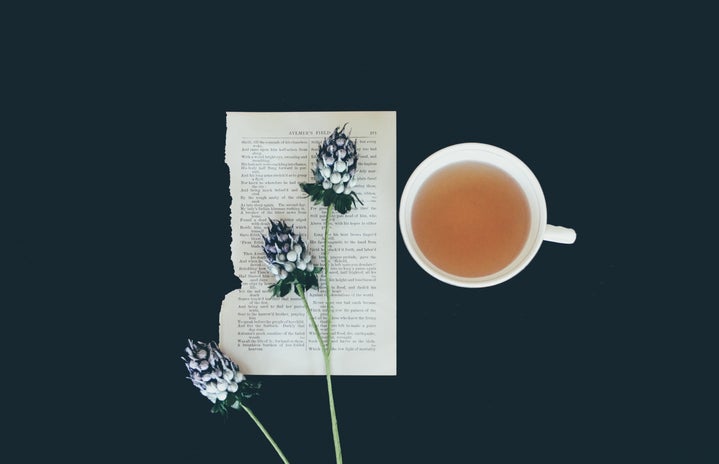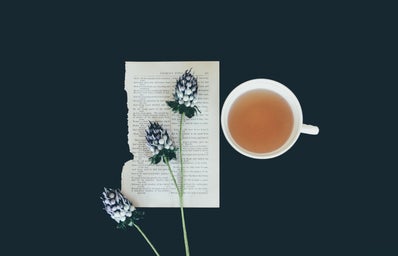Edited By: Tanmaya Ramprasad
Poetry has always held a special place in my heart. I began capturing thoughts in poetry long before I learned how to advance analyses and articulate arguments (some things I now spend a lot of time doing), and it was through poetry that I discovered my love for words and started to explore my own voice. There is a special comfort in exchanging the exacting demands of critical coherence for inspired musings, and a special intrigue in prescribing words to things typically only perceived or evoked. A few months ago, I decided to start a pseudonymous poetry account on Instagram as an archive documenting my own creative and personal growth. Going into this experience, I neither expected much nor knew what to expect, really; it was a convenient way of keeping everything in one place, if nothing else. But since then, my account has proved to be quite a bit more insightful than an inert filing cabinet. Here are some of the reflections my time as a #WriterofInstagram has prompted.
1. On metaphors and artistic inspirations
“Poetry” finds its roots in the ancient Greek poiesis – “to make”. Indeed, what is putting pen to paper to create poetry, if not making? (Although to make what, and out of what, I still can’t exactly name.) Poetry has an uncanny ability to transform and show in a new light every apparently mundane encounter; it does so often by uncovering the hidden philosophies in even the most plain and ordinary. Having an online platform heightens accountability and imparts a constant reminder to find inspiration anywhere and everywhere; being in a constant state of creating means I can rarely afford to render myself a passive receiver that derives insights only from the grandest adventures and most groundbreaking surprises. I have found myself more attuned to the small wisdoms in everyday life and – although much remains to be learned – more adept at discovering metaphorical significance in what would have been fleeting, indifferent occurrences.
2. On the false dichotomy of “arts” and “sciences”
In a previous article titled “Love: Head or Heart?” (which can be found here), I reflect on how academic specialization and the rhetoric adopted in modern educational institutions can contribute to dichotomizing knowledge. I assert that while “fields of studies” are valuably divergent, they are also often derived from and rooted in the same curiosities about our world and humanity. The habit of binarizing our intellectual pursuits – ourselves – as artistic or scientific, one or the other, then, may prove to be a frustrating and futile exercise.
My own academic interests and professional aspirations represent quite the eclectic mix; this I have always known to be true. Reading through old poems – an endeavor much expedited by having them digitally cataloged in neat rows of three – has concretized for me the fact that my scientific and artistic curiosities critically inform one another. I have often identified an (undeliberate) undercurrent of anatomical precision and Darwinian fascination threading through my poems, and while I will always strive to diversify the subjects and referents of my works, I also value having a voice that is characteristically mine, and one which embodies the amalgamation of my different passions. Perhaps the scientist and the creative, then, are not demarcated slices of a pie chart. Perhaps they are not even circles of a Venn diagram allocating a fixed, circumscribed segment of overlap. Rather, they may be one and the same, and their perspectives may ebb and flow into one another until any attempt to tease them apart inevitably comes away empty-handed.
(If you would like to read even more on the intricate relationship between the arts and sciences, I highly recommend checking out this article by Eden, fellow word-lover and brain-enthusiast. In it, she discusses how her scientific background has been an important asset for her creative writing.)
3. On the double-edged sword that is social media
Analogizing social media to a double-edged sword is likely not an unfamiliar sentiment. Earlier, I mentioned that the accountability that comes from maintaining a public platform can catalyze creativity and strengthen one’s attentiveness to wisdom and beauty in everyday encounters. Unfortunately, the pressure from which this constructive accountability is derived can also easily cross a line to become burdensome. Social media imposes a perceived obligation to deliver on a regular schedule; the stress this produces is exacerbated by the self-conscious recognition that what is put forth will be scrutinized by many eyes that are not one’s own. This can swiftly strip the passion from a passion project and leave behind only the project.
This drawback is further amplified by social media’s like/follow-driven culture assigning enormous value to quantitative indicators of engagement and success. I would be lying to claim that not one hint of disappointment surfaces when an “I love your poems!” message is immediately accompanied by a “follow back?” request; every interaction of such sort prompts contemplation about the genuine and the illusory. Ultimately, social media – like most other anthropocentric inventions – has merits and deficiencies that require tact to navigate, and I am certain that how I utilize the platform will continually evolve alongside my goals and priorities.
4. On vulnerability and our humanity
Nevertheless, the most valuable part of this experience has unequivocally been the opportunity I have had to connect with writers from all walks of life and to appreciate their formidable wit and emotions. I am inspired and humbled by the vulnerability transcribed in each piece of work, and I am constantly in awe of how each individual’s journey is both uniquely their own and tethered to a common humanity. Writers, artists, creators – these are first and foremost humans. Social media was designed to advance, well, social bonds; as such, these platforms can provide helpful tools for centralizing the artist behind the artistry, and the persona within the narrative.

